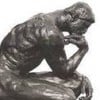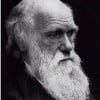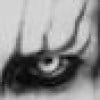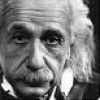Is Nature Indisputable Evidence Of A Creator?
Warning: This thread is intended as a serious discussion for those interested in philosophy. Posts that attempt to proselytize or derail the discussion with an unrelated subject matter will not receive a response from me.
Now to the topic of this thread:
Theists claim that the complexity and order in the universe couln't have come about without a creator. If that is so, then where did the complexity and order that exists in the creator come about? Another creator? Then, who created that creator? Obviously, this would imply the absurd idea of an infinite regress of creators; so, what other possibilities are there? Did the creator evolve in another universe and then proceed to create other universes with life forms (I heard a deist make this argument)? If you subscribe to that view, then you have admitted that some type of evolutionary process can happen, which would defeat the original premise that a creator is necessary for complex and ordered systems to exist. I doubt that any theist would subscribe to that proposition! And besides, if the creator evolved, in what respect would it be a supernatural being?
Theists usually respond to this argument by making the unwarranted claim that the creator is somehow exempt from this problem. However, this is an arbitrary declaration. By what logic is the creator exempt? Theists often say that god "by definition" posseses the quality of eternality. However, you can't simply define something into existence. Just because something exists conceptually doesn't mean that it exists in actuality. So, what logical argument or empirical data can be provided that established the fact that a complex and ordered being that possesses the quality of eternality can and does exist?
I have yet to hear a good rebuttal to this argument.
Understand that this argument doesn't preclude the existence of a creator. It simply questions the necessity of a creator to explain complex and ordered systems.
Please note that this thread is not for those who believe in a creator by faith. It is for those who claim that nature is indisputable evidence of a creator.You cannot prove god logically or with the science or mathematics we have or by nature .
We can see intelligence in nature but that is not absolute proof for god or a creator. The only absolute proof is revelation or enlightenment(samadhi, satori) and this proof is for oneself.
We are talking of a dimension where there are no words, no you and me , only One, no time and no beginning and no end and words have their limitations in trying to describe god.
I see a greater intelligence than humans in nature but what is that intelligence?I agree with what you stated about not being able to prove god logically. I don't know about the rest though.

 you have more intelligence than most on this forum
you have more intelligence than most on this forum 
Your assumptions are purely naturalistic, and existential. Mathematics have shown the "possible", (and probable) existence of multiple dimensions. It seems more than feasible that God (could) inhabit such higher dimension(s).
Your argument also makes the assumption that either our known existence is eternal (IE without beginning, nor end), or self existing. IE, somehow "self genesis happened".
Either it had a cause that brought matter into existence WITHOUT (a) God, or it was CREATED, by ONE such Being.
As for the creation of the creator, the Bible defines Him as SPIRIT. What exactly is THAT?
Whatever your perception, or concept of Him is, it certainly ought not be a natural/material carbon based life form. (unless you are an UFOlogist) which only adds to your dilemma.
Thirdly, the notion of life from NON-life is "out there" in the same realm of faith as creation. Purely speculative, and inconclusive. (not to mention improbable)Perhaps the universe - and not just our observable universe, which had a beginning at the Big Bang - but the cosmos at large never began to exist. This is often claimed of God, so, why couldn't it just as easily be claimed of the cosmos?
Even if the universe had a beginning, does this necessarily mean that it was an intelligent entity that caused it?
As for God being a spirit, what evidence do you have that there is such a thing as a disembodied consciousness or that such a thing is even possible?Sorry to be boring BUT, Jesus Christ.
I know this was not supposed to be part of the discussion, but it is a part whether we like it or not.
I don't expect you will respond, as per your OP, so thanks. Gotta go anyway.
I like this question, even if it's currently unanswerable from the rational standpoint. Like Mohits said, there are not words to describe certain experiences that seemingly come close to a centered state, or a point of first emanation.
One hub I wrote was to do with consciousness and thought forms and how when dealing with thoughts there appears to be an emanation. But to see where they emanate from, you can get a certain way and then lose reference. You get the sense of an archetype but even archetypes emanate from a certain point.
I don't know where one could get indisputable evidence of a creator, or otherwise unless it was actually seen. But if only one person saw it, how would you make someone else believe it unless they also had the same experience.[I used to think like you are currently, thinking that if a creator created everything, then who created him, and then who created the that person and so on.
What I've come to realize is that we can't think about a creator in the same terms as we do ourselves. I certainly don't know and I wasn't there to support my beliefs, but I have what is called a feeling based on reading and facts and other beliefs. My beliefs might not even be close, but I find my explanations easier to swallow then just leaving it to evolution.
The Creator or God as most call him, to me is neither. I think of the origin of our planet and all matter coming from an energy force of pure white light. It's something that can't be explained with conventional science because science will only use current technology or laws that have been established up to this point. Atheists, scientists and the sort are trying to make sense out of this with these tools. The fact of the matter is that there is more than 3 dimensions. Science backs that statement up and agrees that there might be as many as 23 dimensions. With that being said, we might not be able to see everything that is right in front of our faces, nor hear everything that is being said. We can't see or hear radio waves as they transfer our voices over the air but yet we can hear the person that is talking to us on our cell phones.
What I am saying is that there's more than meets the eye, or ears.
Science also only uses the 5 senses to explain things, when in reality there is a 6th sense. This is a level of intuition that not everyone has the ability to use. Science says that everyone is born with this ability, but most lose it or don't understand the feelings they get as to the result of it.
It is true that some people are able to channel spirits, whether you believe it or not. I have experienced this first hand and could share a story with you that is true in regards to the spiritual realm.
What I am saying is this. Not everything can be explained through the use of a microscope or computer analysis. Some things are just beyond that.
It is possible that some people have communicated with what they say is God, who are we to say that it isn't so? I can't say that I've ever spoken to God, but then again I can't say that I haven't. There's been times when I received a message somehow that made me have such an overwhelming desire to change my direction that I followed it and it was the right thing to do. Now, I consider that my ability to use my 6th sense. You have no way of measuring that scientifically, now do you?
There are medians that have proved they can communicate with a the spiritual realm. There are medians that work with our law enforcement agencies and have solved cold cases and murders. There have been bodies found out in the middle of no where that are a direct result of a median telling a cop where the body is.
To me that is proof, maybe not in a test tube, but it's still a fact. So if medians can see visions that lead them to a body, and or communicate with the spirit realm, isn't at least possible that someone has communicated with some sort of spirit that allowed to understand the existence of an energy force (God) that could have created this Universe?
The human body is far to complex to believe that the DNA code can come around randomly. The codes are too specific for everyone and they are all different. This code has been engineered by someone, or something far beyond our current understanding. Now Science and go as far as cloning DNA, apparently, but they can't create it from scratch.
Look at the electrical and brain processes on our bodies, they are far superior to any computer, anywhere. They are complex and there's no way this came about just at random. Not to mention the plants, water, air, Planets, Sun, solar system, and even the possibility of alien existence.
I do agree however with the process of evolution but only as far as advancing our current self. What I mean by that is this. A black person and a white person can have sex and produce a mix breed that is neither fully black or white. An offspring can be taller than his or her parents, and her offspring can be taller then him or her. This can also all be a part of our environment and how they take care of their bodies. Where I disagree is in the area in where we might become a different species all together. That I will never believe. Improve yes, alter to a different species, nope.
regardless of how far evolution continues to develop, it still can be explained as the result of whom ever created this entire universe. Our bodes and brains are designed to use science and technology to do this, but it's part of our makeup, in our genes and DNA. This isn't new.Spiritual encounters and messages from God are subjective experiences. The rationalistic view is that until one has directly experienced such phenomenon, it is not incumbent on them to believe it to be true. I don't know if people really experience the spiritual realm or not or if such a thing even exists. It would take experiencing it for myself in order for me to believe it. Let me make it clear that I am not trying to offend anyone or accuse anyone of mental illness, however, any neuroscientist or psychologist will tell you that some people, even mentally healthy people, are prone to hallucination.
I don't know if spiritual mediums have actually solved any cases. If any have, I don't know how you would go about proving that it was, in fact, through spiritual means.
As far as the complexity of DNA, I don't think any biochemist believes that the DNA code came to be "randomly." DNA was preceded by much simpler self-replicating molecules that evolved to become complex.
That point ventures beyond the points the teleological proofs for God's existence make, and ventures into the purview of ontology.
I fear that if you focus too much on one aspect by which God is defined (ie, being infinite) and ignore others (ie, being Supreme and therefore necessarily real, as something that exists only conceptually is inferior to that which exists in reality), you risk taking teleological arguments out of context.I wasn't limiting this discussion to just teleology. I just wanted to cover some of what I believe are poor arguments used by theists whether they be teleological or ontological in nature. If you would like to discuss the ontological proofs, then by all means let's do so.
Valerie
I understand what you are saying, you want proof (scientific evidence) not just something that makes sense conceptually.
Can you follow me for just a minute with an open mind? I hope so as you seem to be a very intelligent person.
Would you agree with me that there are things today that science has the ability to prove or disprove that 50 years ago they couldn't?
I would assume that you would answer "yes" to that question because it is true and provable scientifically.
Please follow with me, don't jump to conclusions just yet!
So then let me ask you something. Is it possible that based on the answer to the last question, that it's possible that in the next 50 years that science could prove or disprove something that today is impossible with current technology? that is also true and can be proved scientifically in time as we discover new things.
So if both of those questions are true, then is science really the ONLY way that we can prove or disprove as to whether something is true or not? The answer should be NO
Now this doesn't prove whether or not there is a creator obviously, all it is saying is that science isn't completely accurate, am I right?
Now I will go a little deeper here. How many senses do we humans have, is it 5? Taste, touch, smell, sight and hearing, right? Do you believe in a 6th sense? I hope you do, because you want science involved. Science backs the 6th sense and we are all born with it. Unfortunately there isn't a laboratory that can prove that in a test tube or any machine that can measure it yet.
Please follow with me ok?
How many dimensions are there? I would guess that you would say 3, right? If you google it, you will see that even science says there may be as many as 23 dimensions. If that is true then since science can only test and prove 3-dimensionally, then you will never get your scientific proof that you require.
Heres why:
The spiritual realm is not in our 3 dimensional world as we normally see it, it's in a different dimension. Sensing the spiritual realm also can't be contacted using our 5 normal senses, it involves using the 6th sense. Until the experiments are able to get results from using the 6th sense and more than just 3 dimensions proof will never be discovered at least scientifically, currently.
I know, I know this still doesn't prove it to you,right?
do you really want proof? Or do you just want to keep saying that it hasn't been proven?
If you really want proof you have to be willing to use the different dimensions and 6th sense I am referring to, are you willing to do that?
I can help you with that, if you wantApples and oranges.
Science is always on the road to change, religion is static.
The bible has a god, there is no other support or proof for a god outside the bible.
Sciences have to relate and prove itself against all of it's constituents before it becomes accepted.
All the sciences must tie together across the sciences to prove up new theory, the evidence mounts across many disciplines before the theory has any weight.
1. Religion is static: No, it isn't. This is why we can have an ongoing history of religion, any living and present religion. They change all of the time . . . or ossify, fail to meet human needs,and they die off (e.g. the Ancient Egyptians). Even when they die off, parts of them tend to go on to influence whatever comes next.
2. There is no support/proof of a god outside the bible: Ancient Greek and Roman philosophers provided many proofs, and they were neither Jewish nor Christian. That aside, go read my posts here and see whether or not I've provided any non-religious, purely rational arguments to support the idea of God.As there is no such thing as a rational belief in an invisible omnipresent entity I will have to get you to show me where you assume that you have any proof. I say again, no proof at all.
So, I take it you are dogmatically opposed to exploring the subject rationally? Aristotle, founder of most of Western Science about 2.500 years ago, had purely rational proofs for the exstence of God and believed in an omnipresent entity. He had no Bible and practiced no religion.
Historically speaking, it is simply ignorance that would allow one to say that there is no such thing as "rational belief," especially in the West. You may see such belief as wrong -- many "rational beliefs" are wrong (a thing does not become true automatically simply because "logical"). They are certainly as questionable as anything else. But just because one dislikes the content of a belief, that hardly, automatically, renders it wholly illogical and irrational.
I sincerely don't think you've read anything I've written. Which is no sin. But simply firing back at me that I've offered you NO rational proof here whatsoever is rash and unfair in a discussion such as this one. I spent quite a bit of time doing just this. At the outset, the person who started this discussion said it would be serious and philosophical, not dogmatically dismissive.As I see it, I have a right to answer the question posed. I addressed it directly.
I dis not say "a rational belief" I said a rational belief in an invisible omnipresent entity."
As for Aristotle, his rationalizations came out of the same self protective part of the subconscious it does for all humans.
Carl Jung called it "a religiosity of soul."Jung also called it a "rational function." Studied Jung in depth for about 15 years.
That is right Jewel. Do you remember what a "rational function" is?
The key is the Jungian use of the word function.
A form of psychic activity, or manifestation of libido, that remains the same in principle under varying conditions. (See also auxiliary function, differentiation, inferior function, primary function and typology.)
I have Jung's typology around here somewhere!I'm not Jewel. I'm Richard.
However -- Jung himself said in his autobiography that he did not simply believe in God; he said "I know God exists." And he meant that as a rational, scientifically-minded person -- he understood that the archetype of God transcended mere psychological experiences and was connected to an actually existing Deity.
Most of his latter work was devoted to this direction of thought.And I want to get my hands on his Red Book. He did allot of inner exploration, his experiences were not all nice and rosie. Often they are not - you get a mix of abyssmal emotions and experiences, hopefully balanced out by blissful ones. Is so good that this work is being published.
With his work, from what I've read I think it was a NYT expose. He is putting words to non physical experiences. This is the broadening of consciousness. The mind sees, it finds these things foreign and the mind's response firstly is to doubt. But the mind also has the ability to take something irrational and make it rational by exploration. It only takes the ability to see. There is a major difference between experience and blind faith. The more experience you have at widening the scope of what's available to see (inwardly) the word faith becomes a lesser principle. Difference between being told what to believe and experiencing for yourself.
I'm going to give a serious run at this, so bear with me:
1. One wonders at the premise that God is complex or must be complex. The traditional Scholastic interpretation of the subject held that God is simple -- a concept going back to the neo-Platonic idea that God is One. What can be predicated of this reality -- mostly complex because of the presence of temporality (the dimension of time and change) -- cannot be said of God. God is sui generis -- not just another being, but simply Being itself.
That we conceive of God through multiple ideas -- Goodness, Beauty, Being, Holiness, Omnipotence, etc. -- is supposed to be because we experience God in time from our own ever-changing perspectives, not because God is actually many, many things or qualities. God "appears" multifaceted to us because we can only grasp reality in multifaceted conceptual frameworks -- not because God is actually multifaceted.
So, any argument that begins with saying, "God is complex, therefore must have had a creator," etc. (the classic vicious infinite regress critique), is already off on the wrong foot with a poor premise.
2. You say, "Just because something exists conceptually doesn't mean that it exists in actuality." This is a (or mainly THE) counter-argument to St. Anselm's Ontological Proof of the existence of God. For those who do not know the argument, here it is:
a) God is that which nothing greater can be conceived.
b) But an actually existing God is always greater than a potentially existing God or a God who might not be -- to deny God already involves affirming the concept of God.
c) Therefore, God must exist. It is impossible to conceive of God, even to deny Him, without also admitting than an actual God is greater than a non-existing one.
I agree, just because "something exists conceptually doen't mean that it exists in actuality." But there is one thing that does escape that criticism: actuality itself. Actuality isn't just anything or some particular "thing." Actuality is the fullness of Being.
It is impossible to think of Actuality, full and absolute Being with no admixture of becoming or the possibility of going out of existence, without also affirming Actuality really exists.
We experience, in our minds and in our senses, things that are in some way actual all of the time. Now, subtract all of the individual things you can conceive and you are left, not with Absolute Nothingness (as that would be to lack any being at all, or even the possibility of being), but with Absolute Being -- not this and that thing coming into being and going out of it, but with Being itself.
Being is God.
To say "God Is," in fact, is already a redundancy. We may as well say "Existence Exists." God Is Existence. Beyond that, there is not much we can say of Him -- most of our language about God is closer to poetry than any literal grasping of Who He Is and what that means. In fact, it is far easier to talk about what God isn't than what it means for God To Be. This is an approach in theology called "negative theology," such as pioneered by Nicholas Cusanus.
It may be countered, then, that our concept of God is "empty," just as much as our concept of Being (not beings) is abstract and "dark" -- we cannot attach any mental pictures to it or really compare it to anything we experience except in a relative way.
My answer is that this simply shows one of the limits of reason in the fields of theology and philosophy -- reason does have its limits, borderlines of existence beyond which it cannot pass. We encounter these in physics, for example, when we realize the human mind can either locate the position or speed of a partical, but not both at the same time; or when we realize that scientific knowledge is inevitably probabalistic, not absolute. Mathematical knowledge has its own conundrums as well (Goedel's Theorem) and so forth.
In like manner, after reason "sees" God Is (or that 'Is' really is), there's not a lot left for philosophy to say, rationally -- except for the task of saying what God is not.
In short, God does not "possess" the quality of eternality. God simply Is. God IS eternity. Being, eternity, and God are the same thing; God is not a subject with the predicates "being" and "eternality" superadded to Him.
3. Having said all of this, I am not sold on the idea that God *must* be invoked to explain all complex and ordered systems (the argument from design). Looking at complex and ordered systems alone, in this world, I am not certain at all that reason would be led to say they must have a creator. However, if my version of St. Anselm's Argument above holds then we don't need the argument from design to prove God's existence -- the presence of existence IS the presence of God and the absence of Absolute Nothingness is the evidence Absolute Being Is.
The idea of God is enough to prove His existence. Again, just take out the word "God" in Anselm's argument and insert the word "Existence" or "Being" and one will see that the Ontological Proof is tougher to knock down than is usually advertized in college textbooks.It seems to me that all your doing is redefining God to mean "existence" or "being." If existence is God, then I believe God exists. However, your argument is akin to me defining God as my coffee cup. My coffee cup exists, so therefore, God exists.
As far as we know, intelligence requires a medium where the thought process can take place, i.e. a brain or its equivalent. If some being consciously decided to create a universe, I believe that that being would necessarily have to be intelligent, and thus, possess some type of mechanism used for thought. Would you say that existence itself is a conscious being? If so, what mechanism does it use to think? I don't know if you believe that there is such a thing as disembodied consciousness, but if you do, what evidence do you have that such a phenomenon is even possible?
As I have already stated, I believe intelligence requires a mechanism for thought. I would think that thought mechanisms are necessarily ordered systems. That being said, it is paradoxical to claim that complexity and order must be created by an intelligent being that would itself be complex and ordered.And it seems to me you are redfining God in such a way that of course one cannot prove He exists. If we begin with the premise that God is like anything else, only bigger, then we wind up with much silliness coming from both sides of the arguments about God. But, in that case, I don't think anyone is talking about God -- one is talking about possible conceptions of God, the majorit of which have no referent in reality.
No. My argument is akin to equating God with Being,with existence, not with any particular, mutable THING in existance or that can go out of existence. Such a strategy would be foolish -- and, again, would not be talking about God. Your coffee cup has nothing in common with God except,inasmuch as it is present, actual, and not the idea of a coffee cup, it has a share in existence. God is causing it "to be." Otherwise, it would just be a possibility, a not-actually-existing cup. Inasmuch as existence grants your cup a share of itself, the cup persists in being,to a degree.
Being, on the other hand, is not the possibility of Being, but simply Is. Existence Is. And this is the same thing as God, inasmuch as God can be grasped at all by the human mind.
I don't agree with your premise.
God does not think. Thinking requires two things (at least): Time and sensation or abstractions from sensation. If God IS, the category of time does not apply to Him -- things do not occur in a process with God. Secondly, God has no body, so no sensations or abstractions from worldly experience.
God does not think; God knows. For God to know something, God simply must Be. Being, Truth, and Eternality are God -- they are all different words for one unique Reality.
I have already provided an argument that if God = Existence, then existence is not any particular thing. Things are particular so they are embodied, generally; they occupy 3 dimensional space plus the dimension of time (at least). God is not "in" space or time, but God (existence) is the reason space and time have any reality (being).
So God has no body and processes do not occur "in" Him -- this would be to make Him complex and there is no need to assert that or accept the assertion. Being is One. So, however it is God knows, we can infer it would be in a disembodied fashion. This sounds possible to me -- there is certainly no rational argument I've heard that proves it to be impossible.
And as I've said, you are anthropomorphizing a non-human entity. Everything need not be like a human being, especially if that being were Infinite Deity, not incarnate mortal. MAn is hardly the measure of all things in this case.
And I have shown God does not think. To Be God Is To Know All That Can Be Known-- without need of pondering and reasoning at all.
And I think I've raised some serious doubts to your argument that are purely rational. I disagree there is any necessity whatsoever in the assertion --and it is just an assertion, unfounded and unproven -- that God must be complex and "ordered" (i.e. composed of many distinct and categorizable parts)The point I'm trying to make is that there is only one known way to be conscious, i.e. a mechanism used for generating thoughts. I'm not trying to put anthropomorphic limits on the form of the thought mechanism. It doesn't have to have neurons and synapses like our brain. Just some type of thought mechanism.
Sure, there may be other ways to be conscious besides a thought mechanism, I certainly can't prove there's not. However, postulating those other ways is pure speculation. If we had evidence or some rational basis to believe that disembodied consciousness was a real phenomenon, then you might have an argument.Consciousness is clearly much more than thoughts though.
Thoughts are only one small part of consciousness. For example, babies are not thinking in the way adults do--rational thought doesn't develop until after language develops--but they are certainly conscious. Dreams are not thoughts, but we can become conscious while dreaming--lucid dreaming. Meditative states allow an awareness of thought. The awareness can't BE thought--it has to be outside of thought or include it in some way--and people who are meditating are certainly conscious.
So it's complicated.
A light bulb turns an electrical current into light. The light is not the light bulb, but we wouldn't see it WITHOUT the lightbulb.
In a similar way I do believe there can be consciousness outside the brain. The brain is like a very complicated lightbulb...sort of. In fact, the brain is the only organ that can move electricity around. Neurons are able to hold and transmit electric charges. It is possible that our brains are to consciousness what a radio is to sound or a lightbulb is to light.1) What you want, I think, is direct empirical evidence of a non-empirical form of existence. Which is, of course, impossible.
But we may get empirical evidence that would lead us to hypothesize a disembodied mind (conscious or not) and work our way to rational arguments from there.
2) Let's begin with empirical evidence of disembodied unconsciousness -- or let's just say "mind." One would think this maore difficult to come up with, but perhaps not.
3) Last 17 May 2008, a woman named Val Thomas died for 17 1/2 hours. There was a 15 to 20 minute gap between when the woman collapsed and quit breathing and when she was placed on a ventilator. Hypothermia was induced to slow bodily functions.
She was taken off life support, she had no brainwave activity at all during the 18 hours, rigor mortis had set into her body, the family was discussing organ donation with the doctor -- and then, she came back to life 10 minutes after being taken off the ventilator. Doctors have no idea how this was possible beyond saying she had an electrical problem with her heart.
One may Google it.
She was the same person with the same personality, but for 17 and 1/2 hours, she was absent from her body. She remembers nothing of the experience from anything I have read. As there was no measurable life or signs of life in her body and the body was undergoing normal decomposition, I would think one would have to strain the imagination to claim this person was still "in" her body,unless we are going to say all the evidence we commonly accept as signs of death is not really evidence of death.
But something about her must have persisted. There is no medically recognized phenomena I am aware of wherein a decomposing body spontaneously regenerates life after about 18 hours -- and not only that, it's the same life, the same personality that returns.
4) Hypothesis 1: Dead bodies really have life in them. So are not really dead.
Hypothesis 2: Dead bodies are dead; if life returns to them it is from an outside force restarting them.
Doubtless we could come up with more and even better hypotheses than these, but for the moment, I like these two.
Hypothesis 1 seems to require too many assumptions and violates our common experiences of corpses outside zombie movies.
Hypothesis 2 sounds rational and elegant.
What was the outside force, then, that restarted Val Thomas' corpse and returned her to life? It was not the ventilator or any of the procedures -- she had no brainwave activity.
Let's hypothesize it was her unconsciousness, which was disembodied for 17 and 1/2 hours.
5) In any case, I think the case of Val Thomas gives us much to ponder concerning the relationship of consciousness and unconsciousness to the body -- it looks like empirical evidence that a person could be incarnate one minute, then disincarnate (not present in 3 dimensional space), the next, then return to the 3 dimenesional body and re-incarnate 18 hours later.
She was not conscious, so I am not sure how well the term "disembodied consciousness" would apply here, but something essential about the woman was gone and then back with a gap of 18 hours without any good medical explanation-- except that her heart jump-started itself for no good reason.
6) IF the hypothesis that something about Val Thomas survived intact between her death and resurrection is at least plausable, and if the fact of her death and return to life are the medical realities they really are, this is empirical evidence that more is possibly going on with "mind" than mind and consciousness being an epiphenomenon of the physical complexity of a brain.
I don't think it's irrefutable,but it's the sort of thing we have to look at for the sort of empirical evidence you want. And some of this evidence, then, seems to support that something about the mind can endure without a body, at least for stretches of time.
7) You say:
I don't think it's "pure speculation" if we can show it is necessary to postulate the consciousness or knowlege of God is unlike our own -- because to assume otherwise would be to speak about a being who is less than God because complex, subject to process (change and time), and so forth.
I think what makes you uncomfortable is that, to talk about God, we have to shift away from being empiricists and begin relying on necessary connections between rational concepts and abstractions.
But as far as that goes, you can't practice Euclidean geometry empirically, either. You have never seen nor will ever see the perfect circle of geometry -- yet it has some sort of objective, disembodied reality (otherwise we could not all think of it at the same time and each culture could have defined circularity in any way it wished -- a circle could have 359.9999 degrees, for example or 360.0001 degrees; yes, I could pretend to do that, but then I really would not be talking about a circle, but a lopsided oval).
I can't give you any empirical data about the perfect circle, either, but I can show you all manner of geometrical proofs showing what the circle must be like and what it can't be like. Talking about God is going to wind up more akin to talking about geometry than talking about how consciousness must "look" like the only forms of consciousness we directly experience or have empirical accounts of.Here is an article written by a neurologist regarding the Val Thomas story http://www.theness.com/neurologicablog/?p=300
Sure, the Val Thomas case was a medical anomaly, but nothing to jump to conclusions about.
We could talk all day about what conceptual model makes sense when hypothesizing about God. However, as I've said before, the conceptual doesn't necessarily correspond to something actual.
I guess I'm just too much of an empiricist.
And I'm probably too much of a rationalist of some variety.

Some concepts do seem to conform to actual "disembodied" existences -- mathematical entities, perhaps, are an example.
I agree the Val Thomas case is far from conclusive -- but maybe if we look at enough evidence such as this we miht find someof the empirical evidence you'd accept in the subject.
Or not.
AAhhhhhh.... The perfect unsolvable mystery.........

PS, Is it INDISPUTABLE? Obviously NOT, because we are disputing it.
I believe the evidence is being viewed from different perspectives. Question is, which is more probable, believable and likely? One must chose for himself here.
If you found a fine watch on the beach would you assume it just happened by accident?
No? Then why the beach?I would not assume the watch was an accident because I have knowledge of what human artifacts look like. We know watches are made by watch makers. Do you have any evidence of a beach maker? Have you ever witnessed the creation of a beach? Until a beach maker can be proven, it is an assumption to conclude that one exists. Complexity and order cannot be used as evidence of design for reasons stated in the opening post.
Besides, you can't compare inanimate objects with biological objects, which can reproduce with variation and evolve. Evolution, by the way, is not "accident." Natural selection is the very opposite of chance.Yes you do, and if you never met or heard of a watch maker you'd still reach the conclusion that one existed the minute you saw the watch.
Because intuitively, we know what human artifacts look like. This is because they are distinct from everything else in nature. Human artifacts tend to use simple geometric shapes.
The watch analogy is self-refuting because it states that the watch can be distinguished from nature. If watches and beaches are both designed, then how did you recognise the watch as being distinct from it's surroundings? It is because you compared it with nature and your knowledge, both empirical and intuitive, of what human artifacts look like.
Again, what evidence do you have of the designer of beaches, trees, birds, etc?Please clarify. What is it specifically about natural objects that indicates that they were designed?
Ok, so, intuitively you know that there is a creator. Why, because of the order and complexity in nature? What? Or perhaps you saw a leaf blowing in the air and were suddenly overcome with feelings of the numinous?
Have you ever witnessed the creation of a watch? If not, does that mean a watch was never created? It just came together of its own accord?
Because intuitively, we know what God's creations look like.
Your intuition may tell you that, mine does not.
Oh dear. Reduced to meaningless statements.
I should be making fun of your lack of English, but that could be construed as a personal attack.
http://hubpages.com/forum/topic/21896?page=8
Very, very well done. I admire you.You should change your password. Someone has stolen your account.
Feel free, I'm always eager to learn from my mistakes.
In that case scroll up. Meaningless......
Spelling is fine though.
Please feel free to tell me about my "lack of English."
It defines what is in existance. Order and sequence ,equal design, not random co-incidence.
I am not sure I understand. Perhaps I was not clear in my question.
Why does there need to be a "designer" for DNA? Sorry. I will try to be more clear in future. I do not understand the reference to random co-incidence.There doesnt need to be a designer ,just seems logical that there would be one,since everything we know about our world has an order and in my opinion a purpose.

So - if DNA does not "need" to be designed, it could have occurred naturally - without a creator? What is this purpose? I see a certain "order" but I do not see a purpose.
Yes, although I said it does not 'need' to be designed does not automatically mean it occured naturally ( although a perfectly designed for example reproduction system, will naturally occur and reoccur ,such is intelligent design.
Perhaps then, the key ,or another key is that past point.
What is the point of it all ? why is their life?Isn't it understood that the why is unanswerable, but it's the how that is possible to know?
Why is there life.
I'm not trying to sell this idea ,, but.. what if ?
What if the earth is kinda like a vacation resort for angels to take a vacation, from eternity ,
What if our spirits are in fact the children of God that is given a physical body so that we can experience all that is BAD and good thereby appreciating more fully what we have
BACK HOME
It could be something kinda like thatYou have given and excellent answer , about the angels I don't know.

Eaglekiwi -
"Yes, although I said it does not 'need' to be designed does not automatically mean it occured naturally ( although a perfectly designed for example reproduction system, will naturally occur and reoccur ,such is intelligent design.
Perhaps then, the key ,or another key is that past point.
What is the point of it all ? why is their life?"
Interesting. But you made 2 points here both of which beg a question.
1. How have you reached the conclusion that a reproductive system needs an intelligent designer?
2. I don't know how to answer your question other than to ask why does there have to be a "point to it all?"
Neither of which as any bearing on the original question. Although - you accept that it does not "need" to have a designer, so where are you reaching the conclusion that there is one?
I have to laugh. Abiogenesis was "natural selection"???? Of what?
You can (maybe) get away with this argument now, when life forms exist, but not at the BEGINNING. It is ANYTHING BUT a fact.



Good point. Nice. Might be more effective if you had your own questions.
Or an arrowhead.
http://hubpages.com/hub/Thought-Experim … ion-Part-1
- \Brenda Scullyposted 16 years ago
0
Everything has a creator, and usually a purpose does it not
Then, wouldn't the creator have a creator and a purpose? Then that creator would have a creator and a purpose, and so on, and so on ad infinitum. Positing a creator to explain complexity and order is paradoxical.
is that a question?????? I AM NOT SURE I UNDERSTAND THE QUESTION.
well all i can say, read and read and study and think as much as you can, i can........ but a house cannot be built without design, a person can not be born without design...... someone is at the back of it all. we can only ruin, or make better what we have. We can't even create another planet to move to, if we are fed up with this one... we can't even control such things as gravity, or the way our brain works. I am probably far tooo simplistic, for people such as you..... but i know we don't have the power maybe we think we havePerhaps my response to you was not well articulated. As I stated in my opening post, trying to explain the order and complexity in nature by positing a creator is paradoxical because it raises the question of how the order and complexity of the creator came about. Was the immensely complex and ordered creator just "there" and then decided to create? In my opinion, that is far more difficult to believe than to accept that complex systems come about through a cumulative process; some type of evolutionary process. Like I said in my opening post, this does not preclude a creator, it simply questions the necessity of one.

David,
Are you essentially asking the age-old question "Which came first: the chicken or the egg?"Not quite. I am asking whether it is reasonable to posit a creative intelligence to explain the complexity and order in the universe. I believe that positing such a thing is paradoxical for reasons I stated in the opening post to this thread.
Look at the design of the Woodpecker. his beak is hard enough to dig a hole in a tree or telephone pole. His brain in right behind his beak.What an impact that must receive. His tong is long enough to reach into and behind the hole that he has just made,searching for insects. During the initial impact of his head slamming into the tree or telephone pole; his tongue rolls up behind his brain making a pillow thereby protecting his brain from damage.
I can not see that happening by pure chance.
How many species must have perished before this
evolutional feat was accomplished,and what caused it to want to do that in the first place?To - jerami
No offense intended, but this is a very poor argument. "I can not see that happening by pure chance," suggests that "chance" is what drives evolution. Nothing is more wrong than thinking that. Although - evolution does not necessarily dis-prove a creator.
http://www.freeratio.org/thearchives/sh … ost4732806
- pgrundyposted 16 years ago
0
I think the problem is in the personification of the Creator. There's no big man in the sky with a gray beard who decided to make the earth and some people one day. People relate to that way of thinking about God because it's easy to understand, but nothing about this topic is easy to understand (or maybe even possible to understand) so that way of looking at it just ends up distorting reality. That's my view.
Mystics, people who have had NDEs, and people who have had a certain brand of religious experience talk about God as being a timeless pure light that is all love and all knowledge. To say those words does not touch the experience or come close to describing God, but I do think that light is a better metaphor (and a more consistent one) than the Old Man in the Sky.
I wonder how long it will take for this thread to get whacked by the saved. I don't know about the Universe, but mankind is an error. You just have to see how the human body is made.The limits it has.And the limits of our brain.The way we conduct ourselves. The pettiness of our dayly life.It's obvious that this 'life', at least, is the creation of 'something'. But I don't believe this something to be God or any being who could care about us.We are left to ourselves here.So I do the best that I can with my life, and enjoy it.
Man has not created man or the sun, moon, wind, stars, sea etc.

I agree and when I sit on a beach just as the sun rises , wow , yes someone designed all of this creation. It is so finely tuned ,all in time, all connected,atmosphere,ocean activity,earth's thermostat, on an on it all goes...all living creatures rely on it.
Who ,What Scientists marvel everyday at new discoveries.
Yet many people still demand a miracle ,lol if ya not already convinced , will you ever?
"Either you can see the magic,
Or your life is indeed tragic. " Mohit
Mohit
"If you can see the magic in just one flower, your life will change drastically " BuddhaYes each has his time , some are not ready but will be with time

Yes. But how can a God make so many errors? Couldn't it be only a kind of primal energy that create this world ? And that this PE doesn't care of the consecuences of its creation? Could it be an energy that just 'creates',no matter what the last result ?
HE DID NOT MAKE ERRORS... mankind made them.... he gave us free choice, if we all went round being like robots without freedom to think, who would you blame for that... probably a creator, but you don't believe one.... so tantrum i am going to lay the blame on your shoulders for everything... ha ha
Isn't it what we do with what we have that is questionable and erroneous? Why do we blame some external source for our actions?
oooops Tantrum, this has been said a few times. I've just added to the pile.But if we commit a lot of errors it's because a major error was commited before. the major error being this creation
Isn't it standpoint that determines it as an error? That's way too philosophical perhaps. You're right to a degree, when you look around you see more negatives than positives. But isn't that correctable, and done so by our actions?
Of course! don't you ? Maybe you're not humble enough
 (joke 4 u )
(joke 4 u ) no I see perfection not only in me but in you , ever human and this entire cosmos as well but I need to drop my ego in order to do so.
no I see perfection not only in me but in you , ever human and this entire cosmos as well but I need to drop my ego in order to do so. 
So what is this super energy which can create this cosmos and atoms and neutrons?
This universe is in perfection and quantum physics or science has understood this , what seems to be chaos is actually order.
according to the limits of our brain. We can't see through. If you believe in this 'universe' it's your choice. I believe this is a joke

Its called the cosmic joke in spirituality which is something you will understand only when you get to know yourself.

I know myself alright. That's why i can have my own opinions
Who are you? Just a human or something much more?
I'm something much more of course! Full of flaws, nevertheless.
I'm sure you know what I'm talking about. if not you're a false prophet
and I'm off to take my daily bath, as my body, full of flaws, gets dirty
 bye !
bye !Those flaws are perfection. Everything is in perfection , you asked for these flaws or experience and now you have them

Who created that sense of humor tantrum
 ..,no further back
..,no further back
What is primal energy? Such a supremely intelligent energy which coordinates the movements of planets with such precision for god know how many years. Just look at our solar system. Who or what has the capacity to do this? Man certainly doesnt,

Body/flesh...living organisms = evolutionary process
Soul = electrical mechanical control/brain, nerves etc.
Spirit = love, hate, emotion, instinct, God...if you wish to call the spirit....God.- \Brenda Scullyposted 16 years ago
0
i sppose a non believer and a believer could never come to an agreement on this question...
There are so many things we cannot understand, like infinitey ....... when our life is so short in comparison. That is why, to have so much belief takes lots of faith, and at the end of the day mere humans cannot really direct their own steps, or basically agree on anything, what say you to that, am I talking rubbish?????? When we go through hardships in life, and we say why would a loving god just sit by and watch. We need to consider ...
A rough diamond goes through hardships while being hammered on and cut up before it looks like a gem. A chunk of iron has to go through the furnace before it becomes a sword. We have to have our sharp edges knocked off before we can be caressed.
And don't even ask for patience, The magic wand will not be used in giving it to you. It will take a long time coming and it will be rubbed in firmly or else it won't last.
We are all chunks of coal waiting for the right amount of pressure before we can become a rough diamond only to then be hammered and chipped, Ya gotta wanta be a diamond really bad in order to want to go through all of that.
That is what it makes me think of.- \Brenda Scullyposted 16 years ago
0
i knew you would take the blame, it will give the creator a couple of seconds break from taking all the blame, that is if there is one,,,,,,, (of course i believe there is...... just in case anyone reads this who i know)(yikes)
- \Brenda Scullyposted 16 years ago
0
oops messed that up my post was about the cake above.....
How is it flawed? Because we have a body that rots? Is that the sort of thing you're meaning?
Not only that. Humankind is created to end by its own destruction. If that's not a flaw... What is ?
Are you meaning the apocalypse? Or a full evolution? I didn't think it was written in stone, just that book that's interestingly flawed.
how can i mean the apocalypse, me being an atheist ?
 just look around! It's not so difficult to see !
just look around! It's not so difficult to see ! 
What you see is changeable or correctable. It's likely though that we will self destruct - it certainly looks like that's where humanity is heading as a whole. But saying this, doesn't mean it's not correctable. I think humanity is too darn lazy to make the changes necessary or too scared.
and if that's not an error in itself !....
 .lol:
.lol:
and as I stated above, I'm off to take a bath. Human bodies get dirty Bye !
Bye ! 
Humankind was not designed to end. That came in as a result of the fall of Adam. He was given the choice of two trees. One being life eternal, the other knowledge.
Man chose knowledge. He was deceived into thinking that with that knowledge he would be like God. He lusted after that knowledge, that power and he was willing to accept whatever the consequence for it was.
It seems tantrum, as though you are trying to justify mans sin, his crimes, his mistakes with a scapegoat (God). Using Him to say it is all His fault and taking culpability away from man. Taking the responsibility off mans shoulders.
Man is flawed as a result of sin. He chose that path of sin. God knew but He also loved. So regardless of the fact, he made a way for man to still have life eternal and have that life eternally perfect. To be re-born as it were into a new creation in Christ.
So we are not under the generational curses of Adam. We can have life and have it more abundantly. We just need to choose the right tree.
atomswifey -
"Humankind was not designed to end. That came in as a result of the fall of Adam. He was given the choice of two trees. One being life eternal, the other knowledge.
Man chose knowledge. He was deceived into thinking that with that knowledge he would be like God. He lusted after that knowledge, that power and he was willing to accept whatever the consequence for it was.
It seems tantrum, as though you are trying to justify mans sin, his crimes, his mistakes with a scapegoat (God). Using Him to say it is all His fault and taking culpability away from man. Taking the responsibility off mans shoulders.
Man is flawed as a result of sin. He chose that path of sin. God knew but He also loved. So regardless of the fact, he made a way for man to still have life eternal and have that life eternally perfect. To be re-born as it were into a new creation in Christ.
So we are not under the generational curses of Adam. We can have life and have it more abundantly. We just need to choose the right tree. "
"
This seems to be very off the topic. Is there a reason fro that? I understood these discussions needed to stay on topic to stay within the rules?
And I do not know where you are getting your data from, but it is wildly inaccurate. There are, in fact around 10,000 different species of trees, sadly reduced from the number we would have if humans were not so destructive.
The post is off topic perhaps. Bedtime for those downunder. Nite all.
I think you're getting too hung up on watches. The point I'm trying to make is that the existence of a creator cannot be inferred from the complexity and order of nature for reasons stated in my opening post.
But you allow it for human creations and even recognize an "intuition" for such obvious truth, but you (and everyone since the dawn of time and long before any watch was made) are surrounded by other far more complex creations all the time and hold them to a different standard even under the same conditions.
Just because watches and nature have common qualities (order/complexity) doesn't mean that they will have other things in common as well ( i.e. having been designed).
There is one mechanism that is know to be able to make the progression from the simple to the complex - evolution by natural selection. Watches aren't biological organisms, and thus, couldn't have evolved their complexity and order. However, nature is a different story.
Order and complexity on their own don't indicate design. If that were the case then the designer, who would also be complex and ordered, would also be designed, right? If not why?
You have spent your time criticizing my appraisal of the watchmaker argument, yet, I have not heard a good argument in support of design from you that doesn't already fall under the fallacious lines of reasoning I have already addressed in my opening post.Really? Is natural selection always "simple to more complex"?
Most generally yes. I'm sure there are some exceptions though. What I'm driving at is the fact that the evidence attests to the power of the cumulative process of natural selection to build complexity over vast expanses of time.
What creationism/ID try to do is explain how things got here by claiming that an immensely complex being made other complex beings, but doesn't explain how the immensely complex being exists. Theists say that our complexity and order demand a designer but the designer's complexity and order doesn't. Quite a contradictory view if you ask me. Evolution by natural selection is the superior explanation because it explains how complexity arises without invoking an agent that would itself need to be explained. In this way, it avoids the infinite regression because it is a self-bootstrapping mechanism.Would you believe my four-year-old asked me the same thing today? We were driving and suddenly I hear from the backseat, "Who created God?"
I simply said, "I do not know."
With you on that one, Dave.
At the moment, I am looking out across the Greek Mountains, marveling at the complexity of the olive trees, how each leaf seems to be in just the correct place to receive the optimum amount of sunlight. However, this apparent complexity does not prove the existence of a creator - the watchmaker argument is old and tired.
The way that trees branch, our own network of blood vessels and even the beating of the heart can be described by very simple equations - one of the greatest contributions of the Chaoticians. Complexity from simplicity, and we find that nature is very economical, recycling the same rules and reusing them, over and over again.
Of course, this leads to the question of who, if anyone, made these equations and rules. Personally, I am with Mo and Jewels on that question, in that I believe but appreciate that I have no logic or reasoning to back this up.
I could be correct, I could be very deluded - Who knows?and you sound like a poet, go on write a poem
Cheers, Brenda - I hope to start writing a little more prose. As for the poetry - I am not that cruel. My poetry is truly awful, only to be used as an instrument of torture.

Thanks, Dave - Likewise.
Whether there is a guiding hand behind creation or not, as long as we can appreciate the beauty of nature and feel the rhythm of life, then all is well with the world
Hey, Mohit - How is life treating you?
Hi Sufi you have been away for some time, life is as usual ying- yang getting love from some and attitude from some

Nice to read your writing , so balanced
lol - isn't that always the way. It is a while since we had an epic debate on here. I have been very busy and also kept out of the religion forums for a while - too many indigestible lumps of scripture flying about

Glad to see that you are still here
NO. Nature is not indisputable evidence that there is a creator. Only if one ceases to think beyond the parameters of our primitive minds can he draw that conclusion.
The scientific answer makes sense, can be tested and is logical.
The religious belief has no substance at all.This will be my last comment on the subject as it's a waste of my and everyone's time trying to win an argument that isn't meant to be won.
To say that the scientific answer makes sense, because it can be tested and that the religious belief has no substance at all.
I challenge the method of testing that science says is factual. Spirituality is non physical and therefor can't be tested with today's technology. Until science has a way to test in other dimensions and use more than 5 senses, the scientific methods are invalid.
Let me explain what I mean. If you lost a loved one, say one of your parents. During the night you were sleeping and this mother or father appeared in your dreams and told you why they did something the way they did during their life in the physical plane and it lead you to understand something better and to feel better about them. Maybe you were holding a grudge of some sort and what your father told you in that dream relieved you and helped through it with a better understanding.
That would have been a spiritual experience that can be very common to many people. Now, was it real or just a dream? Science could never prove it and would certainly say it was just a dream. You might just believe it was a dream too, since you don't believe in spiritual things is what I gather from your comments.
I've had dreams like this and other situations and I know they are from the spiritual realm. I could never prove these with science, as they don't have the ability to test, at least not yet.
Also I've yet to see science produce life of any kind in the laboratory. If you ask me, that is the only way I would ever say they have a case. Even if science could create a life, how did the planets get here and the space surrounding.
I've also heard the argument that said, well if God created everything than "who created God?" That is a silly argument because the argument itself reinforces the involvement of a creator.
Depends on what you define as static when it comes religion. Spiritual pioneers who go where the ordinary muggle dare to tread are making headway in the mapping of consciousness. Separate the dogmatic religion of the past perhaps.
Science does not have all the answers, though scientists are forging ahead to find answers. Doesn't mean they know it all. As was said previously science has no way of proving non physical states of consciousness. However, if a methodical process of collating data using 100 to 200/300 people can be put under the banner of scientific study, then it is being done. It will take many decades before it is given any credence, let alone become mainstream. It may never happen.
As rv pointed out, using that 6th sense, a nebulous term for the scientist of course, the experiences are phenomenal, expansive, heightened. Interesting RV, I've been able to perceive or cognize these non-physical experiences using my sense of feeling. There is a tactile element available. This makes it a physical experience, but unless there is the ability to widen perception, widen consciousness, these experiences are not seen. The states are very real so it's not imagination. Though I debate why imagination is not real. Another non-physical experience that's not provable. Just because a father cannot see the invisible friend his daughter has, doesn't mean the daughter doesn't have an invisible friend. The father just can't see.Hello Jewel, I do not believe science knows it all. What I am saying is that religions rely on information from religious tomes, nothing else. They are not permitted (mainstream) to think other than as instructed, and have no other point of reference or any proof of their beliefs from outside.
Science is always changing, with theories tested against the other sciences. No fit? theory may be wrong so it is not integrated.
Just two days ago we have a whole new link in the evolutionary chain to be examined, and science will have to incorporate the new fossil, but religions for the main part cannot entertain the apparent conclusions to be drawn.
The subconscious we can learn to access is as you have shown on your website, very real, and one of the high roads to human consciousness is meditation.
No bible or quoran? No literal god.It has to be added in the mix, that there are a lot of people who are doing meditation and transformation work who align to or use some biblical texts, bits of the quoran, sanskrit terms, buddhist teachings etc. In my honest opinion, and as I've said before, a person can match allot of these texts to their experiences when doing an inner work of alchemy. Much is lost in interpretation because it is not applied personally, but externally. Therefore of course it's going to sound like rubbish.
It is unfair to lump all spiritual (religious) people in the same boat. That's irrational based on the experiences of those actually practicing. When I say practicing, I do mean those who are meditating or to use the catholic term contemplating at a deep level and transforming. Not just reading scriptures and leaving it at that. There is a difference, lost on the ignorant and stubbornly righteous
Excellent point Jewels,
My daughter who's 3, has mentioned seeing things, during the waking hours. Unfortunately there is no way to know if what she is seeing is make believe or she is seeing it for real. I think this is what happens to most people that have that ability in their young lives to see what is apparently invisible to most adults. As the child gets older and is told there is "nothing there" they tend to believe that themselves and block out the ability. It's sad
Apologies jewels and Richard.
This from Dr Pravin Thevathasan
In sum the teachings of Jung are wholly at variance with the Church. There is little scope for dialogue and none for a Christian-Jungian synthesis.
That may or may not be true -- Jung said he was a gnostic. For the sake of our conversation I'll agree wth you.
However, this goes straight to my point: Jung, a rational, scientific man, had a belief in God based on rational arguments. One could care less whether he was Christian or religious at all -- you were claiming to me & others a couple of posts ago that a rational belief in a diembodied spirit was impossible or senseless without a Bible. Here is Jung, no Bible or religious affiliation at all according to your own evidence, who had such a belief.
By invoking him, I think the good Dr.Jung has just shown up to disprove your own claim.In case you've forgotten which claim I mean:
Jung believed in religious belief itself as a part of our psych, a natural inbuilt mechanism of the human mind, not an actual external entity.

See, that's the main difference here. That darn external being with arms and legs. Take the 'personalized' entity out of the equation altogether. Do we need a survey of 2000 spiritual/religious people to determine if the majority are for the personal god or an impersonal divine essence of some difficult to describe nature?
No, he believed our psyches contain a universal imprint of the divine -- the archetype of God -- that pointed outside ourselves to an actually existing independent God. No, he was not an orthodox believer, but he was a theist; which is involved in his open claim to being a gnostic and to "know that God exists," not as a merely psychological mechanism, but as an external referent the psyche points towrds through the archetype of God.
Go read his autobiography.I have already read it.
Jung studied many religions and decided that the process of individuation was at the mystical heart of all religion.
I would argue it is "inbuilt," but refers to something outside itself, just as vision is "inbuilt" but intends or is of something outside itself.
But let it rest there. I think you and I have two different readings of Jung, two different interpretations -- yours is naturalistic and claims belief in Deity is inbuilt and illusory; mine says the very idea or archetype or concept of God intends and depends upon a Being that is not the inbuilt idea or archetype, but the meaning of the archetype.
So, instead of continuing up this avenue, I would like to know what you would accept as rational evidence of or reason for a belief in disembodied intelligence we may call "God"? I understand you don't believe anyone has shown this, but what would you accept as evidence -- what would the argument have to look like before you'd accept it as "rational"?
I mean something like this: If we lived in a world where all the swans we saw were white, we might have a theory that said, "All swans are white." But for this theory to be, itself, a good theory, there must be some way to test it or there must be some sort of evidence or rational argument that would be capable of disproving it, even if we never found that evidence or argument because they don't exist. For example, we could admit that we can imagine swans in different colors -- if we found a non-white swan, it would break our theory.
In fact, there are black swans, so this theory, which held for a very long time, was broken when we folks from the northern hemisphere explored Australia (I think) and located them.
Running with this, from your posts, I gather:
1) You don't think anyone has proven belief in God is reasonable.
2) All belief in God comes from some Holy Books in a religion,
3) or, as an addendum to (2) that developed in our conversation, you think belief is a purely psychological mechanism, bred into us for some odd reason (or maybe as a defect?) over the millenia.
I think I could sum up your working theory as this:
.'. Belief in God is necessarily irrational; there are no such things possible as logical arguments or evidence that could prove God exists or even provide one with the reasonable grounds for the belief God could possibly exist.
My questions and observations for you:
a) Am I accurate? Is this your position, or am I oversimplifying or misunderstanding you?
b) Premise #3, your argument or assertion that belief is a psychological mechanism only is, in philosophy, a fallacy we call psychologizing. It works like this: When someone makes an argument (e.g. Aristotle's arguments for the unmoved mover and self-thinking thought), we shift from discussing the objective truth or falsity of his arguments, and go into a discussion of his psychological motivations for making the argument. Which is nice if we're psychologists, but this is a philosophical discussion.
Let's say I argue 1+1=2. Your response is to say, "Hmm, his motivation for doing this is to gain power over a disordered world and provide mental stability in the midst of chaos." That's fine, but it's not an appropriate answer. The problem is, Does 1+1 really equal 2 or not, and why, and how can we know,or can we?
My point, invoking Jung to get philosophical arguments off the stage is a red herring. It's fun to talk about, but it doesn't address whether the philosophical arguments for or against the existence of God make any rational sense or are true, not true,probable, improbable, possible, and so on.
I think you'll have to grant me just this much: Just because someone is stark raving mad does not mean they might not be speaking the truth. It would be wrong to dismiss their claims out of hand just because their psychological make-up is complicated. If we stick to examining Aritstole's arguments or St. Anselm's or mine,or anyone else's here about rational belief in God, the Being of God, complexity, and so forth, and leave our psychology out of it, we might make some headway, or at least understand one another better.
I mean, come now. I could just as well take any scientific position you could offer about any subject and dismiss it as you have here by saying that the scientists have a psychology, too and all sorts of hidden "irrational" motivations -- I could just as well claim physics isn't talking about any really existing part of reality, but only about archetypes and ideas born of instinctual drives and fears. Again, that would be very cute, and maybe even good psychology, but then I'd miss out on whether science really has anything to say about reality that might be the least bit objectively true, regardless of psychological motivation.
c) Which brings me to my ultimate question for you: What would serve to disprove your position that we may not rationally believe in God or that no one has ever made a rational argument for the existence of God or that all belief is irrational, and so forth?
If you have a theory and have no way imaginable the theory could be countered -- even if no one has ever done it or ever can do it -- you have a bad statement of your theory. Such a notion would not stand up under high school science fair scrutiny, because it is not so much a theory then as a dogma, something you hold on absolute faith with no hope of being open to evidence to the contrary.As a side note, I think we've been working with the assumption that human beliefs and experiences only come in two categories -- rational and irrational.
I think there is a third category: The a-rational. Beliefs or experiences that cannot be proven solely by reason, but which cannot be shown to necessarily violate anything which, by reason, we know or have strong evidence for believing. Some things are just "not rational" (a-rational), but that does not make them irrational or in absolute violation of reason and logic. They do not negate reason and reason does not negate them.Thank you
Firstly I am a post Jungian, and see plenty of problems with psychology in general, but I also see growth.
The belief in god defies all the solid evidence that disagrees with it, that grows daily. The accounts of the bible or quoran no matter how much ducking and weaving and interpretation goes on with scripture remain what they are.
Stories written by sexist hateful men whos words betray their psychology.
The bible and Quoran indict themselves. All about hate and fear.
On an even less scientific note, the whole thing is less than plausible if you have to include a psychotic invisible entity in to the equation as a god.
Sorry if that seems narrow of me, but if I told you I had just moved my suburb with my beliefs you may have some trouble believing me.
I believe religion to be ignorance by choice.
We'll agree to disagree, then.

I'll choose to remain ignorant and keep arguing that my beliefs are, at the very least, not unreasonable.Richard, could you address the issues I have raised? I guess ignorant by choice is a bit harsh.
 I just fail to see why the very hateful words of these tomes do not raise real questions in the minds of believers, that lead them away from dogma.
I just fail to see why the very hateful words of these tomes do not raise real questions in the minds of believers, that lead them away from dogma.I'll give you a blessedly short answer this time, I promise.
In the Jewish and Christian Bibles, I see an evolution of humankind's understanding of God. Little by little, humans have been able to accept more truth and refine their experience of who God is and what God desires from and for each of us.
God evolves from the particular tribal God of one people, to a God of a nation located in one temple, a God of vengeance and anger,into a God with no location who forgives as well as revenges Himself -- till, finally, this God is a universl God who loves all humans and is not a God of vengeance at all, but the God of mercy who belongs to no tribe or people.
And then the history of the Church is a further unfolding of our understanding and misunderstanding of this universally Merciful Deity.
It isn't that God changed -- God has always been Who He Is; it's us who changed, us who became more open, us who changed our minds, us who allowed the truth of Divinity to light moreof existence -- as much as our individual and cultural evolutions have allowed this.
The hateful words in scripture are not God's words -- they are human prejudices getting in the way of God, like dark or flawed glass between the eye and the bright light of the sun. Read as history, we see that, slowly, painfully, some humans have removed pieces of these misguided conceptions and allowed a more direct vision of truth and goodness into the world.
This is how I reconcile the hateful portions of holy books with the truth and wisdom that is also contained within them.And I fail to see how the messages of love that exist within these very same tomes can so thoroughly escape the educated reader's notice that they raise no question about their alleged hatefulness.
There are messages of love in many places, including scripture, poetry, literature, and letters from my ex-husband. OK, that was flippant. I don't mean to be rude, but the loving passages in the Bible don't escape notice so much as they fail to inspire belief. It's that proof thing that keeps coming up - some people can't get past it.
I'm still thinking this over and examining both sides of the question. It seems you did a very good job of stating the parameters of the question. So, even though for my own personal beliefs, the beauty, variety, and the way everything works together in such a vast biosphere has me impressed with the idea it couldn't have come about by accident, or at least not in this amount of time, I would have to say, that isn't evidence of the kind you mean.
I'm personally satisfied there IS a Creator, just looking around me at nature. It only seems reasonable to me.
But no, that isn't indisputable evidence. There is no indisputable evidence, at least not yet, that I'm aware of.Am interested to know his interpretation of the word individuation? It sounds a bit like a sense of separateness which would marry with duality. Even when you experience 'divine spaces' there is still the sense of separateness, otherwise you would not have anything to reflect off. There are paradoxes when talking about these experiences, as the higher you go the easier it is to feel a loss of being individual.
Emanation of an archetype - works for me, especially when mapping thoughts and consciousness, you can see how they are a fallen principle, of something greater. And there is also the sensation of being something greater the more I involute and go into the less grosser spaces. Suggests something finer, lighter and larger, but still a fallen state of something that is aspired for.
The description of individuation by Jung et al is of a self and other than self understanding.
It has been described many ways but to me it is the marriage of the aspects of self.
Here is a brief Jungian description.
"the gradual integration and unification of the self through the resolution of successive layers of psychological conflict."
This process starts with self examination. Real self examination of the painful kind, the shadow aspects of self, the affected child, the hate, fear, self loathing, justification are dealt with by integration.
the fear of this process takes many years to overcome for most people.
The process of individuation leads to love without need of love, kindness as a natural authoritative function of self preservation and a vitalization of the sense of being without needing external stimulus.
Movement and action may be self limited in well individuated people, they do not seem to hurry, yet they usually achieve more with focus than many others achieve with effort.
This is not the road for many I feel. Too hard, hurts too much, takes too long.
It is my road, and I am learning to enjoy the bumps as much as the smooth bits.
It's not unlike what a Buddhist initiate goes through, in fact anyone who goes inward will come across these emotional difficulties. Self awareness is used as model in Hinduism and Buddhism. It sounds like there are levels to individuation. Self love without the need for love is a state of being and requires strong centeredness. It could also be pushed the more involuted you go. I personally would not be satisfied with this state alone. There is more to be had, but that's me.
So sounds like the Jungians have more work to do to go into more involuted states and get a language for that. I wonder if that's also what's in the red book.The modeling of Buddhism and Hinduism is partly correct, and formed part of the Jungian way of being at points in his life.
You are also correct in assuming there is more to be had.
A well individuated person will have already experienced death in one sense and have gained many self archetypes and symbols before understanding self.
I believe I have experienced some of the this road's little gifts, such as synchronisity and the "breaking off" of concsiousness.
The potential to self worth without abandoning half of self because it is "bad" is easier to grasp than it is to cope with psychologically though!
During "the deep sea journey" experience, which came to me after 6 years of practical application of dream therapy, (another high road to consciousness)I felt death in my very living daily, and have never sunk so low. I clung to T.S.Elliot's "Wait" for two years of my life as I struggled with the dark stillness inside me. Hell, it's a very long story Jewels, maybe I'll write about it all.
The experience you're describing is the Dark Night of the Soul, it precedes the death before rebirth - or hopefully a rebirth. Not an easy one. Breaking off of consciousness is an awareness and deconstruction process that is done because the lower mind is such an ass!
So true about the lower mind. It is so ignorant it does not even know ignorance!

I should have said dark sea journey or dark night of the soul when referring to this archetypal dream.
The experience of synchonicity can be very scary in it's creations!
A very religious experience in some ways as it makes real events take place that should not logically do so.
- pgrundyposted 16 years ago
0
Oh my, some people who speak in complete sentences are actually having a thoughtful conversation about religion in this thread!
That is a rarity in the Hub Page forums. Congratulations all of you!
I think sometimes the reason vs. religion card gets overplayed. Religion and reason share a passion for absolutes and deterministic statements. Faith is more about entering into a relationship with mystery.
I think Jung, for all his popularity, was more of a religionist than he claimed to be--It's just that his religion is secular. It's still a romance with absolutes, with nailing this or that to the wall.
Freud and Jung were having this battle over who would get to be 'boss' of a new science. Freud was excluded from science and made his own science. Jung and Freud had a sort of pissing contest and Jung made his own version of psychoanalysis. Both men share a passion for science and rational thought but were cut out of one game or another.That's really interesting Pam. I have been wondering since Jung's red book was discovered, just what the man was experiencing. The problem with mind work, is that it can become rigid, and it has to be fluid. Not an easy thing for a scientist to get his or head around. Only because these 'altered' states of consciousness are not easy to map, in that you can often not get back to the same place that easily. But there is this off-putting pushy mind that gets in the way with this work all the time. And so it requires the discipline of a stillness and then the discernment to know the difference between one state and another. In the work I do on mapping consciousness, Dr Sagan uses two levels of consciousness, one being the ordinary mind which is the normal mind that cognizes wider states. This ordinary mind is the same mind that we have to keep still while mapping the higher one. It's such a discipline, but it's half the fun, if you could call it that. It's work to be honest! Means going beyond the state of bliss and having a look around, even avoiding bliss cause that's the dangled carrot of meditation.
And the timing of the red book, that's what I find amazing, grateful too. If it were found during his lifetime, he'd have been laughed out of the profession I'm guessing. Discredited for sure as a madman and perhaps locked up. Best it was not made public.
- pgrundyposted 16 years ago
0
I'm looking forward to getting a look at that book too!
I like Jung, but I do think we are living during a paradigm shift of sorts. When most people talk about religion or reason, the are really talking about a basic philosophical model that is at least 400 years old. I see this in Jung's work--this need to let go right alongside the need to quantify and categorize. I think it really is the struggle of our age.
Sagan's work is interesting alright! What an exciting life you are having. I am also interested in the work on consciousness and the transpersonal. It's not all gold, but at least it's alive.
All this about non-physical states and such is surely interesting, but I don't believe they exist. The mind is incredibly complex and intricate, and the slightest changes within it can cause profound effects in the external world. I think we will know certain things after death, unless death is pure nonexistence, in which we will not know anything.
Kaabi
I'm glad you brought that up. There is one way to know for sure, die!
I remember the movie "Flatliners." In that movie a group of scientists experimented with death by bringing the bodies temperature down to a point where they "flatlined." Of course this was in a movie and not real life. But in this movie they all recalled experiences to bring back to the group.
This would be a very difficult testing method to get approved, unless we wanted to test it out on prisoners?
There have however been many reported cases of people that were legally dead and then were brought back to life. In almost every case similar stories were told. Not all "near-death" victims reported seeing anything. I guess it's like our dream state, some people remember their dreams vividly and others don't. I've known two people that have had a near-death experiences.
The first one that I can recall was a man I knew in Florida. He was shot during the Vietnam war. He actually flat-lined in the field and the medics were able to resuscitate him. He told me a story that helped guide me down this path many years ago.
He said that all he could remember was that everything seemed to be alive, plants, trees and people and it all seemed so peaceful. When he regained his pulse and began breathing, he experienced anger because he didn't want to leave such a peaceful feeling.
Now if that story is true and I believe it to be, based on my friends character,if he could experience the peace after his heart had stopped beating and was able to recall this, doesn't this show that there is more? I realize that isn't laboratory and there is no way that science can document this.
The testimonies are numerous, perhaps science could use a form of lie detector to help bridge the gap between what is spiritual and real to our eyes.The more you experience the more you can believe they do exist. I've said this before, one of the goals of a diehard spiritual initiate is to see beyond the physical (including beyond death) while in the world. Being able to see it shows the continuum of consciousness and also that consciousness is beyond the brain and therefore not physical.
I think my original post was not publish for some connectivity error, so I am reposting it.
Is Nature indisputable evidence of a creator, or evolution?
What if Both, evolution and creationism theories were far from the truth as we know them. I mean, I was not there thousands or millions of years from today. What if there were more rational answers to the origins of life.
That is what free thinking is all about.
Sometimes starting from cero will lead our self to be free of bias. I believe in science;don't get me wrong. I did my college Major in it and I love it. I trust the scientific method.
But are we going to still believing in this in 3,000 C.E.
The only thing constant in live is: "the Change(evolution)"
Will evolution theories go through new evolutions. They will.
The present knowledge will be just the base for the future knowledge.I assumed I had mis-remembered Jewels. You are right they do have similarities though.
The journey I speak of is experienced as an Archetypical dream of enormous psychological proportions.
It is the most terrifying, immobilizing and helpless condition I have known, and is relentless.
Happily many years ago for me.
I have studied the bible extensively as a believer, and arrived out the other end of it with a different view.

It is amazing to me that believers take these books literally.
I saw the transition from old to new testament, and how many believers will accept only the new testament and claim the old as history. Right up till they need to make a point that is only in the OT. Then that part alone is resuscitated.
I see hypocrisy and hate in the threads where someone threatens others with their god or their gods mate satan.
It is to my mind pretty disgusting and obvious how this works, it has a name, this type of thinking is called projection. What I see in it is insecurities being projected on to others in the vain hope that they will support their fragile belief.
What I see in it is insecurities being projected on to others in the vain hope that they will support their fragile belief. 
I can see how one would arrive at this understanding, especially in light of how many voiciferous Christians are hate-filled or at least angry about things they've never dealt with or admitted in their own lives.
And these ar very angry and intolerant times, indeed, in many places. As many strides as have been made in the USA in terms of acceptance of others who are unlike the majority, there is now a tremendous backlash in the direction of people who wish to undo those strides -- and who are fearful of anyone or thing that seems "different," especially after the last 8 years.
That said, for myself --
I don't see the Jewish Bible, the Tanakh, as "Old," except as in "ancient." It remains the living scriptures for the Jewish people, and for traditional Christians, too. It did not somehow go "out of effect" after Jesus and the Apostles.
And I do not believe it is possible to understand the Jewish scriptures outside the Jewish traditions and discussions of it -- one must know the Midrashic literature and the Talmudic commentaries, and even be familiar, at least, with traditional Kabbalah, the mystical interpretations.
Much of the Bible is not to be taken literally -- one must look at it historically; one must look at it symbolically; one must look at it allegorically; and one must look at it mystically or anagogically. One must place it inside the traditions within which it was written, otherwise the fundamentalist hermeneutic takes over and any subtle truth or value to be found is lost and people wind up arguing over minutia. "Straining out the gnat while swallowing the camel."
Humans are quite good at using anything to excuse their weaknesses and prejudices. Science has been used this way -- the Nazis used science -- biology and eugenics -- as an excuse for their great experiement in racism, and the Commmunists did the same using history as their excuse for any action they performed; and modern laissez-faire free market Capitalism excuses its actions by implicit appeals to social Darwinism. Others, unsurprisingly, bring their prejudices to holy books and look for an echo of their own shadow, an excuse to project that shadow onto others, onto those who are different than themselves.
I don't see that the main narrative of scripture encourages that. It encourages the opposite -- it encourages reflection and self-examination, removing the beam from one's own eye -- not criticizing the speck in one's neighbor's. But scripture also shows actual humans who are imperfect and do foolish and even evil things -- and who either stuggle with it or become too comfortable with their imperfections, with their imperfect treatment of others.
I think the scriptures encourage an internal struggle, learning to forgive one's self and one's neighbor, ultimately. They encourage an extension of the love of God beyond the borders we arbitrarily draw and with which we are comfortable. They encourage acceptance of the stranger and tolerance. They ask for peace,for sharing, for receiving that we can give to those we see in need -- all of us adbvancing together, or none at all.
The other parts of scripture -- the hatreds and violent acts -- are records of the struggle to come to terms with this insight, and our repeated failure to do so. They represent humankind's very slow growth in coming to terms with Who God Is, the God of Mercy, and what this means for us.
This is how I see this issue, where my own spiritual journey led me over the course of 43 years.Thank you for the clear explanation of your position. I have arrived at different conclusions as to belief, but agree completely that the bible is not to be taken literally.

My knowledge of the Jewish beliefs as they operate within society is far too limited for me to have a separate view on this.
Certainly self-examination is a valuable activity; I actually came to atheism through a long, deeply spiritual search for something I could actually believe. What I found was science and philosophy; obviously I don't agree with or "believe" everything I read, but I have found peace in study.
The approach and attitude you describe to Christian study is socially positive, but that does not mean the Bible is "true." The real stumbling block for the atheists I'm acquainted with is the lack of evidence. I also balk at an ethic that calls faith - belief without evidence - a "virtue." How can we teach our children to evaluate arguments logically and maintain a healthy skepticism about secular matters when we've asked them to base their code of ethics on something illogical for which there's no evidence? I have many religious friends, and I love them dearly, but I see religion itself as an intellectual cancer.
Every person knows that science has already explained how Earth came to be.
With the Moon in orbit, it allow for the evolution of nature.
Nature paved the way for Humankind.
In early years of humankind's existence, men/women were guided by nature up to the point of human consciousness.
When humankind began to develop primitive language through the use of "metaphors", humankind took the first step toward separating themselves from Nature.
With that said- Humankind surpassed the power of nature's automatic guidance system and on to Independent, free will thinking.
Therefore, humankind could control their entire life, by simple thought.Nature is the clearest evidence of a creator that human beings have. Humanity can always doubt religion but nature can not be denied. Who can deny the reality of their own existance. Through out the ages man has searched for the source of humanities existance and as intelligent beings, reason has always brought us to the conclusion something of greater intelligence has created life.
Through nature we know that life comes from life; this is an empirical fact. Evolution can not full explain the complexity of all living things and thus is flawed in explaining the existence of life. What evolution is good for is explaining the adaptation of life and anything beyond this is intellectual blindness.
Nature is gods surest truth to man and though man has distorted religious truth offered through sacred scripture. Man can never silence nature's revelation that is always being revealed.OK. Since you are a man of reason. Who created the creator? This seems to be just another deluded attempt at encouraging people not to think, and blindly give in to fear.
An infinite being has no beginning. The Creator in which most believers have faith is infinite. Therefore, the Creator, having had no beginning, never needed a creator in order to exist.
Majik. Yay!



Deary me....... Your ridiculous beliefs are interfering with your ability to stay on the topic of the thread.
How you know that for sure ? You've empirical evidence for the claim that you make for creator ? just assumption based on some angelic dreams of humans and scripture right ?
Is Nature Indisputable Evidence Of A Creator?
Answer: No!
Have a great day!
Well - as we are disputing it right now - I guess it is not indisputable. Those who have already decided there must have been a creator or their lives are not worth living will probably use it as an argument in favor though.

Nature is much too intricate to be designed by any of the gods I know of.
Most of them can't get passed scaring the masses, and threatening to destroy all of nature to punish man and make him pay for his sins
It might depend on a persons frame of reference if he were to ponder whether or not Nature is evidence for a Creator. Running through a jungle being chased by a tiger as opposed to sitting by the lakeside fishing might bring on differing opinions.

Related Discussions
- 303
The Existence OF Creator
by sibtain bukhari 12 years ago
There is no scientific and logical evidence of self existence of universe, therefore,only logical conclusion is the creator of universe not proving its self existence .
- 170
The Kalam Cosmological Argument
by David Bowman 8 years ago
Warning: This thread is intended as a serious discussion for those interested in philosophy. Posts that attempt to proselytize or derail the discussion with an unrelated subject matter will not receive a response from me.Now to the topic of this thread: One of the favorite arguments of the...
- 235
Why do atheist and other none believers not accept as proof human existence Inc
by Kiss andTales 10 years ago
Why do atheist and other none believers not accept as proof human existenceIncluding them ?I ask this question because atheist are persistent with this line prove that God existBut as they are given proof they persist to say the same words, example a husband and wife claims to love one...
- 87
Not finding God by the Scientists is a proof of God’s existence
by paarsurrey 15 years ago
The Creator-God Allah YHWH is only attributive and has no physical existence. When Scientists say they don’t see him in anything; in fact they announce that He exists.
- 282
What is the best way to explain the existence of God to an atheist?
by JP Carlos 10 years ago
What is the best way to explain the existence of God to an atheist?I've heard people try to convince atheists that there is a God by quoting the Bible or some other holy book. But quoting from such materials won't work. You have to believe in them before you can accept them as plausible...
- 20
Atheists, can you make an argument for god's existence?
by M. T. Dremer 10 years ago
Atheists, can you make an argument for god's existence?They say that, in order to understand both sides of an issue, you must know enough that you could argue for the other side. It's a common practice in speech/debate classes. So this question is for atheists; can you make a convincing argument...






































